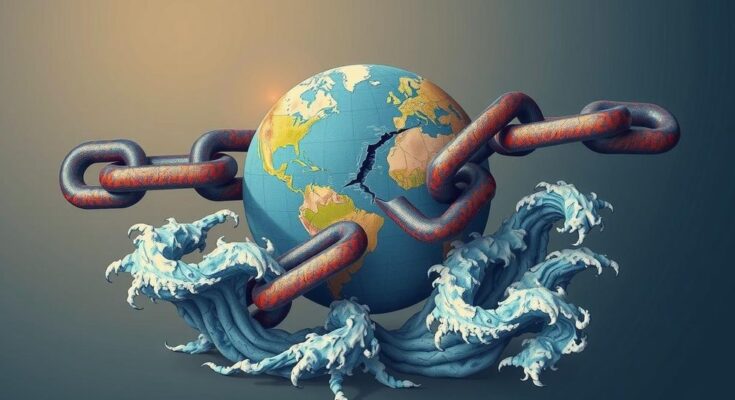In the shadow of International Human Rights Day, Afghan women and girls are confined to their homes, stripped of education and opportunities due to the Taliban’s oppressive regime. Although the United States imposed sanctions on Taliban officials last year in response to ongoing human rights abuses, skepticism surrounds their effectiveness. Fariduddin Mahmood, a key figure in enforcing educational bans, illustrates this paradox; sanctioned yet unrestrained, he continues to preside over the Afghanistan Academy of Sciences.
Khalid Hanafi, leading the Ministry for the Propagation of Virtue and Prevention of Vice, perpetuates grave human rights violations, including violence against those resisting their draconian regulations on women’s education and freedoms. Sanctions, designed to influence state behavior through economic and political leverage, currently lack power. Despite two years without formal recognition, the Taliban’s leaders remain active in international forums and regionally, undermining the intended impact of these sanctions.
Nazila Jamshidi, an expert in international development, points out the selective nature of the sanctions: only 135 Taliban officials are subject to travel bans, excluding many who maintain the regime’s oppressive mechanisms. As these leaders navigate the world stage unfettered, the mistreatment of Afghan women continues unabated, exemplified by a series of recent restrictions limiting their autonomy and access to education.
Since December 2021, women have been barred from traveling without a male guardian, airlines receive orders to deny boarding to unaccompanied women, and even academically deserving female students have been grounded from flights destined for educational opportunities abroad. One student, witnessing her aspirations slip away, poignantly remarked on the fear and hopelessness faced at an airport.
Despite the Taliban’s statistical claims of female workforce participation, these figures mask a grim reality—the majority of women are coerced into work under dire circumstances. UN experts and advocates assert these trends conform to systemic gender apartheid, where the Taliban’s governance dictates a harsh existence for women, maintaining their grip on power through oppressive laws.
Jamshidi emphasizes that extending travel sanctions to all Taliban officials, irrespective of rank, could hinder their global representation and limit their capacity to endorse harmful ideologies. Without stringent travel restrictions, sanctions lose their effectiveness in compelling the regime to address issues of gender rights. A decisive, unified action from the United Nations is essential to uphold human rights in Afghanistan. This moment in history urges support for the Afghan populace enduring relentless oppression.
Afghan women remain imprisoned by the Taliban’s oppressive policies, despite U.S. sanctions aimed at their leaders. Figures like Fariduddin Mahmood and Khalid Hanafi exemplify the ineffectiveness of these measures as they continue to enforce harsh restrictions. Experts advocate for broader sanctions to ensure accountability and protect human rights in Afghanistan, stressing the urgency for international action to support the oppressed population.
The failure of current sanctions to significantly impact the Taliban underscores a critical need for international unity and a stronger stance against gender oppression in Afghanistan. To regain the power of sanctions, all Taliban officials must be subject to travel bans, curtailing their ability to project authority internationally. The response of the global community must urgently prioritize support for Afghan women and families facing systematic violence and human rights violations.
The article sheds light on the complex situation facing Afghan women under Taliban rule amidst ongoing global sanction efforts. Despite the formal imposition of sanctions in response to widespread human rights violations, the Taliban continues to assert control and restrict women’s rights. Figures such as Fariduddin Mahmood and Khalid Hanafi exemplify the paradox of these sanctions, highlighting the gap between international policy and on-the-ground realities in Afghanistan. Experts stress the need for a more robust and comprehensive approach to effectively challenge the Taliban’s oppressive regime.
Original Source: www.jurist.org



